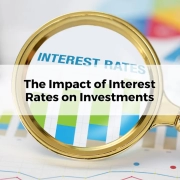How to Invest in Real Estate
Table of Contents
ToggleThe Australian real estate market is a dynamic and multifaceted sector that offers numerous opportunities for investors. Known for its stability and consistent growth, the market has attracted both local and international investors. Understanding its intricacies is essential for making informed investment decisions.
Investing in real estate is a proven method for building wealth and securing financial stability. It provides tangible assets that can appreciate over time, offering both capital growth and rental income. Real estate is also a way to diversify your investment portfolio, reducing overall risk.
Understanding the Australian Property Market
Key Market Trends
The Australian property market is influenced by various factors including economic conditions, population growth, and government policies. Key trends include urbanisation, rising property values in major cities, and increasing interest in regional areas due to lifestyle changes.
Major Cities vs. Regional Areas
While major cities like Sydney, Melbourne, and Brisbane offer robust growth potential, regional areas are becoming increasingly attractive due to lower entry costs and potential for high rental yields. Understanding the nuances between these markets is crucial for successful investment.
Types of Real Estate Investments
Residential Properties
Residential properties, including houses, apartments, and townhouses, are the most common type of real estate investment. They offer stable rental income and potential for capital appreciation.
Commercial Properties
Commercial real estate includes office buildings, retail spaces, and warehouses. These properties can provide higher rental yields compared to residential properties but come with higher risks and management complexities.
Industrial Properties
Industrial properties such as factories, distribution centers, and storage facilities are essential for business operations and can offer long-term leases and stable returns.
Mixed-Use Properties
Mixed-use properties combine residential, commercial, and sometimes industrial spaces in a single development. They offer diversified income streams and can be more resilient to market fluctuations.
Benefits of Investing in Real Estate
Capital Growth
One of the primary benefits of real estate investment is capital growth. Properties generally appreciate over time, providing substantial returns on investment.
Rental Income
Investing in rental properties generates a steady stream of income. This rental income can cover mortgage payments and other expenses, potentially providing a positive cash flow.
Diversification of Investment Portfolio
Real estate investment diversifies your portfolio, spreading risk across different asset classes. This diversification can protect against market volatility and economic downturns.
Risks Associated with Real Estate Investment
Market Volatility
The real estate market is subject to fluctuations due to economic conditions, interest rates, and other factors. Investors need to be prepared for potential downturns and market corrections.
Maintenance Costs
Owning property comes with ongoing maintenance and repair costs. These expenses can impact your net returns and need to be factored into your investment strategy.
Liquidity Issues
Real estate is not as liquid as other investments like shares. Selling a property can take time, and you may not always get the desired price quickly.
Initial Steps to Take
Setting Financial Goals
Before investing, it’s important to set clear financial goals. Determine what you want to achieve, whether it’s long-term capital growth, steady rental income, or both.
Assessing Your Financial Situation
Evaluate your current financial situation, including your savings, income, and existing debts. This assessment will help you understand how much you can afford to invest and secure financing.
Financing Your Investment
Mortgage Options
Various mortgage options are available for real estate investors, including fixed-rate and variable-rate loans. Choosing the right mortgage is crucial for managing your investment’s cash flow.
Government Grants and Incentives
The Australian government offers several grants and incentives for property investors, such as the First Home Owner Grant and stamp duty concessions. These can help reduce initial costs and improve affordability.
Self-Managed Super Funds (SMSFs)
Using an SMSF to invest in real estate can provide tax advantages and greater control over your retirement savings. However, it requires careful management and compliance with regulations.
Choosing the Right Property
Location Analysis
The location of your property significantly impacts its value and rental income potential. Research areas with strong growth prospects, good infrastructure, and high demand for rental properties.
Property Type Selection
Choose the type of property that aligns with your investment goals. Consider factors such as property size, age, condition, and potential for appreciation or rental income.
Inspecting Potential Investments
Conduct thorough inspections of potential investments to identify any issues that could affect the property’s value or require costly repairs. Professional inspections can provide detailed assessments.
Understanding Legal and Tax Implications
Stamp Duty and Land Tax
Stamp duty is a significant upfront cost when purchasing property, and land tax is an ongoing expense. Understanding these taxes and how they impact your investment is essential.
Capital Gains Tax (CGT)
Capital gains tax is payable on the profit made from selling an investment property. Effective tax planning can help minimise CGT and maximise your returns.
Negative Gearing
Negative gearing occurs when the cost of owning a property exceeds the rental income it generates. This can provide tax benefits by offsetting losses against other income.
Working with Professionals
Real Estate Agents
A knowledgeable real estate agent can provide valuable insights and assist in finding properties that meet your investment criteria.
Mortgage Brokers
Mortgage brokers can help you secure the best financing options by comparing loans from multiple lenders and negotiating favorable terms.
Property Managers
A property manager can handle the day-to-day operations of your rental property, including tenant screening, rent collection, and maintenance, allowing you to focus on growing your investment portfolio.
Property Management Strategies
DIY Management
Managing your property yourself can save on management fees but requires time and effort. It’s suitable for those with experience and knowledge of property management.
Hiring Property Management Services
Professional property management services can provide peace of mind by handling all aspects of property management, ensuring your investment is well-maintained and generating optimal returns.
Renovation and Improvement
Adding Value to Your Property
Renovations can increase your property’s value and rental income. Focus on cost-effective improvements that provide the highest return on investment, such as kitchen and bathroom upgrades.
Cost-Effective Renovation Tips
Plan renovations carefully to avoid overspending. Prioritise essential repairs and upgrades that will enhance the property’s appeal and functionality.
Long-Term Investment Strategies
Buy and Hold
The buy and hold strategy involves purchasing properties with the intention of holding them long-term to benefit from capital appreciation and rental income.
Flipping Properties
Flipping involves buying properties, renovating them quickly, and selling them for a profit. This strategy requires careful market analysis and efficient project management.
Real Estate Investment Trusts (REITs)
REITs allow you to invest in real estate without directly owning property. They provide a way to gain exposure to the real estate market with added liquidity and diversification.
Monitoring Your Investment
Regular Property Valuations
Regularly assess the value of your property to track its performance and make informed decisions about refinancing, selling, or making improvements.
Keeping Up with Market Trends
Stay informed about market trends and economic factors that could impact your investment. Adjust your strategy as needed to align with changing market conditions.
Exit Strategies
When to Sell
Deciding when to sell a property is crucial for maximising returns. Consider market conditions, property performance, and your financial goals when making this decision.
Maximising Profit on Sale
To maximise profit, ensure your property is well-maintained and consider staging it for sale. Timing the market and negotiating effectively can also increase your returns.
Alternative Exit Options
Consider alternative exit options, such as refinancing to pull out equity or converting a rental property into a primary residence. Each option has different financial implications.
Investing in real estate in Australia offers numerous opportunities for building wealth and securing financial stability. By understanding the market, choosing the right properties, and employing effective management strategies, you can maximise your investment returns. Regular monitoring and professional advice will ensure your investment aligns with your long-term financial goals.









